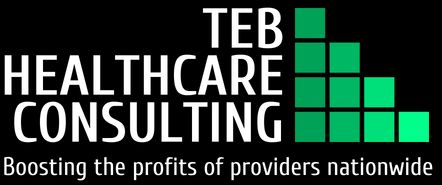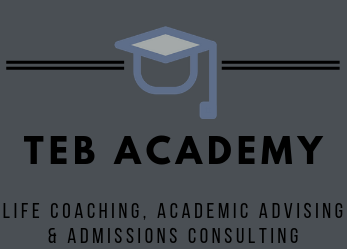TEB Academy: Life Coaching, Academic & Admissions Counseling

If you are an employee in any large or middle-sized company, you likely have a leadership development program - internal or contracted. These programs are great, if you get into them. They are highly selective and political. So what is the answer to increase employee retention and growth for the masses? Coaching. If you don’t have a program, I suggest you create one or contract one into your organizational matrix.
A new company, BetterUp, has taken up the mantra of coaching for the masses to a new level. It recently went through a round of venture capital funding that secured $100M. BetterUp has over 100 clients, a third of whom are in the Fortune 100. It offers online coaching to employees of these companies through over 1000 coaches that are all contracted.
What is the ROI? Some companies using the service report a 26 percent increase in productivity, reduction in burnout by 15 percent and increase in retention of 63 percent.
The bigger question I think we need to ask ourselves is how much worth is it for an employee to know their “purpose” in a job. Is finding “meaning” in the daily grind we all go through important and is it s a measure of the employer’s success?
Most organizations have had consultants and others coming in, sometimes ramming down solutions that are neither specific to them nor effective.
What coaching should be is an attempt to listen to employees in ways that immediate managers are either not trained to do or don’t have the time to do so. It is to listen, believe, trust and work to develop next step solutions. By keeping the conversation about building small successes and individualized plans, both employees and employers benefit and what could otherwise become paralysis, resentment or squabbling at work is reduced significantly.
If you like what you read here, make sure to subscribe to get my blogs delivered to your email. Also share about TEB and what we do to develop doctor's businesses through TEB Health and develop future budding doctors and life coaching through TEB Academy to your friends and family.

Since then, medical education has evolved further, but not nearly at the pace it should or in keeping with the theory of what types of folks become physicians and what specialties they choose.
Case in point. Medical school interviews have become almost uniformly MMI, or Multiple Mini Interview format. What is this? Another attempt by medical schools to inject "fairness" and "objectivity" into the process of admissions, still ultra-competitive. The goal of this latest attempt is to decrease subjectivity by exposing a candidate for admission to multiple interviews by different members of the admissions teams in situations that simulate case examples, questions that test responses to hypotheticals, or team effort, rather than a single interview with an admissions committee member who may or may not really like a particular candidate. For example, rather than meeting an experienced doctor in a 1 hour interview, I go through 6 stations or different setup situations that are rapid fire and test me in different situations. The theory is great, but in practice I wonder how much of this process actually gets to know any one person more than what 10 minutes can really tell you about anyone!
As the blog title mentions, theory of medical education is based on creating doctors that are whole, infused with the right ingredients for success with patients, and with the rich education that will help them succeed in their careers. Once in medical school, medical school deans and others talk about the benefits of a primary care education, from a consistent $250K+ income to meeting the needs of a diverse population.
In practice though, what happens is much different. In reality, all that the ultra-competitive components of medical education admissions has done is decrease the number of people who go into medicine for the right reasons (true commitment to people with the kind of people skills you look for in your doctor).
By sanitizing the admissions process through methods like MMI, the so-called fairness of the interviews has made the reliance on #s and MCAT scores, GPAs and the sort even greater. Moreover, the results of who is selected don't necessarily bode well for the future of the country.
Most recently, an article in the American Journal of Medicine (AJM) titled "Where Have the Generalists Gone? They become Specialists, Then Sub-specialists." chronicled this alarming fact. As a result, the percentage of US primary care physicians decreased from 50% in 1961 to 33% in 2015. Rather than attract a rich and diverse group of physicians who can serve a diverse community, the ever-increasing competitiveness and cost of medical education, coupled with a slow rise in residency positions (that do not keep in pace with the population growth), has created a situation that does not bode well for America's aging population.
The AJM article highlights that by 1914, 75% to 80% of medical school graduates took 1-year internships. That has changed remarkably since the 1914, to all our detriment. What needs to be done is to give away with 4 USMLE (licensing) examinations in favor of 1 or 2 examinations that are practical, admissions to medical schools that are actually based on screening for humanistic and personality characteristics in addition to grades (which is what you and I look for in our doctor), and a more streamlined process with more residency spots to train generalists.
Otherwise, as Peter Ubel said in a recent Forbes article, people’s attitudes towards physicians are beginning to look downright Congressional. And like Congress, that is never a good sign.
If you like what you read here, make sure to subscribe to get my blogs delivered to your email. Also share about TEB and what we do to develop doctor's businesses through TEB Health and develop future budding doctors through TEB Academy to your friends and family.

To get in front of the line, you can take a willing donor who wants to be paid. If not, you still get a place in the line but it may take longer. Is it fair? No, but neither is life.
Disneyland does this with flash pass. I guarantee you that I will get a lot of responses about how unethical this is, but consider that patients already desperate for organs travel to 3rd world countries to get these organs at enormous personal risk.
There, donors are paid. Is it right? No, but neither are a lot of other things we witness daily.
When choosing between life and death, I choose life and giving patients choice. # travel # countries # risk # life # things # personal hashtag # fair # world # take # choice # donation
More here: https://www.washingtonpost.com/national/health-science/a-daughters-gift-to-her-mother-saves-two-live...



Big title, right.
But what does it mean?
Have a goal, a strategic direction for your life, something you want. Settle on it and when obstacles come your way, don't let them get to you.
How do you do this?
Think of it this way. I listened to a speech by Simon Sinek where he said if you know your destination, you won't be dissuaded if I put a chair in front of you. Why? Because you go around the chair, around the obstacle, to your destination. It doesn't matter the steps, or the extra ones you took to go around my obstacle. You wanted the goal so badly, you used your creativity to overcome the chair being placed in front of you.
What if you will go to any destination without a target or goal? That same chair or obstacle I place in front of you now becomes that which stops you from either moving forward or making it so you start heading into a new direction.
Moral of the story. If you own or manage a hospital or healthcare organization, having a strategic goal and vision is so important. If you are a student, it is similarly important. If you are a professional or executive, it is how you overcome the annoying things that come into your life while staying laser focused on the goals and not complaining.
Best wishes to all of you, and if you like these ideas - visit me at TEBHealth.com or TEBAcademy.com
Better yet, contact me at shefizadeh@TEBHealth.com if you would like me to coach you, speak to your leadership group, or simply share with you my thoughts on a business proposal or expansion plan you have. I hope I can be in service to you.
Thank you.

My parents have always taught me to keep busy. Pack your mind with so many positive things and activities so that it feels like a packed can of sardines! Don’t give your mind time to think about useless thoughts. Don’t let your boredom cause you to create or rehash or rethink what if scenarios of what you/someone else said or did or meant.
Case in point. In 1978, Dr. Bruce Alexander, a Canadian psychologist did a Rat Park experiment that led to a major breakthrough linking environment to addiction. He and his research group took a group of rats and put some in one cage and others in another cage, all the same species so you have similar rats in both cages. One of the cages was like Disneyland or what he called Rat Park inside, full of activities. The other case was like a third world country prison. In both cages, the researchers attached various drugs to the cages (so the rats could self-inject themselves with drugs) and watched to see what each of the two rat groups would do. The ones with the activities in their cage tried out the cocaine/heroin/amphetamine but they never came back for seconds. Why? Because they had too much to do. What about the rats in the cage with nothing to do but inject the drugs? Well they became addicts and died.
Addiction or bad habits are a product of a person’s environment that feeds the addiction. Feelings of hopelessness, lack of control, or unsatisfactory living conditions can make a person dependent on substances. Under normal living conditions, rats and yes, humans, can resist drug and alcohol addiction.
Moral of the story – surround yourself with positive ways to make an impact, influence and help others so you have no time to think about old and redundant matters like who said what and what they could have meant by it.
About the Author: Ali Shefizadeh is a healthcare executive with 10-plus years’ experience in healthcare administration, clinical medicine (trained as MD) and leadership roles as hospital CEO and COO. He is a UCLA trained physician who went into medical school because of intellectual ability and desire to help patients and ended up wanting to manage people and healthcare organizations. Ali is highly motivated and desiring to make critically needed change management, operations optimization, and strategic goal-setting needed to reach goals. He is focused on re-establishing financial stability, growth, and increasing market share for healthcare organizations, helping them reach a dominant market position in their chosen service area. To read more about Ali and his work helping hospitals and clinics visit TEBHealth.com and to see more of what he does to help students visit TEBAcademy.com
To read more entries like this, read Ali's book on Amazon: Fear Not, Grasshopper



